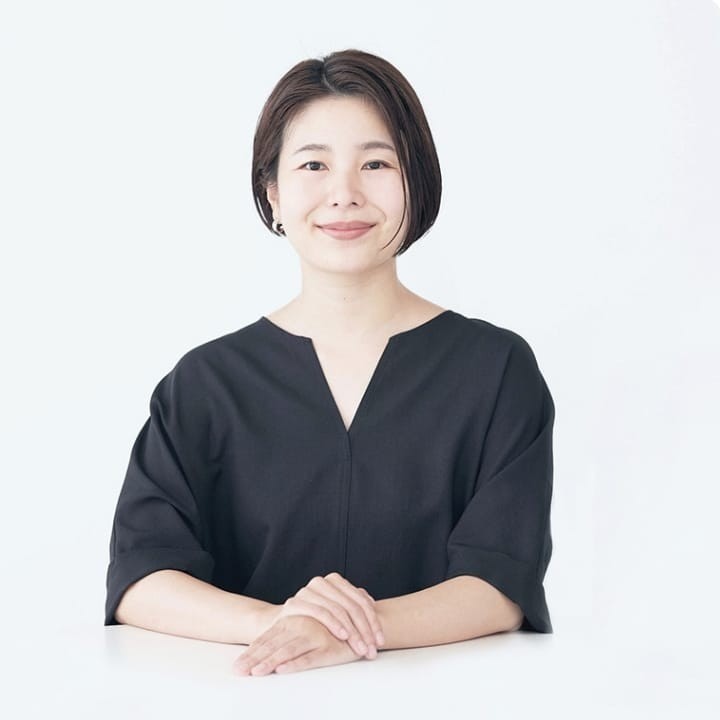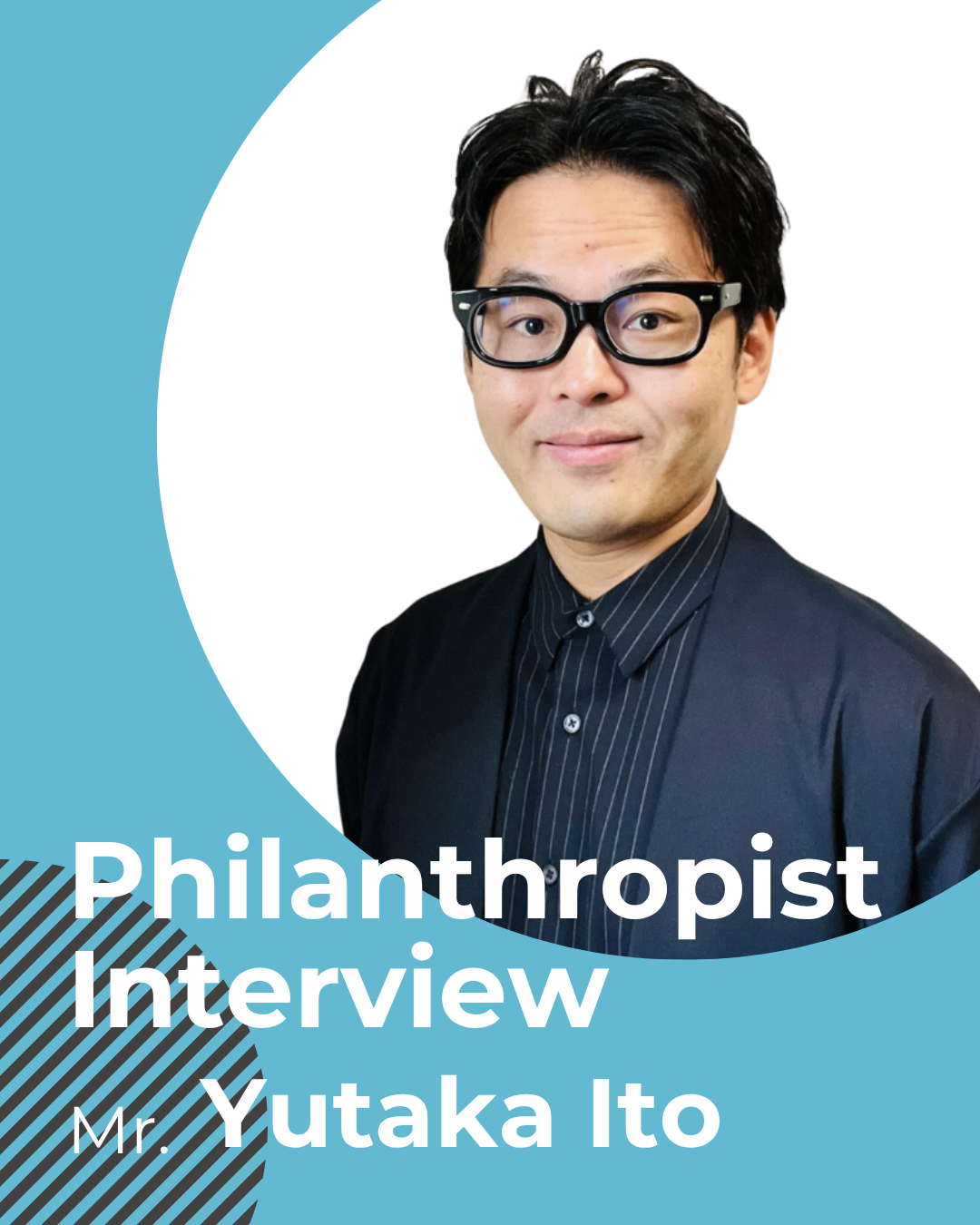INFO

Eric Golden: Philanthropic Journey From Volunteering in Tokyo to Cooling Homes in Sierra Leone
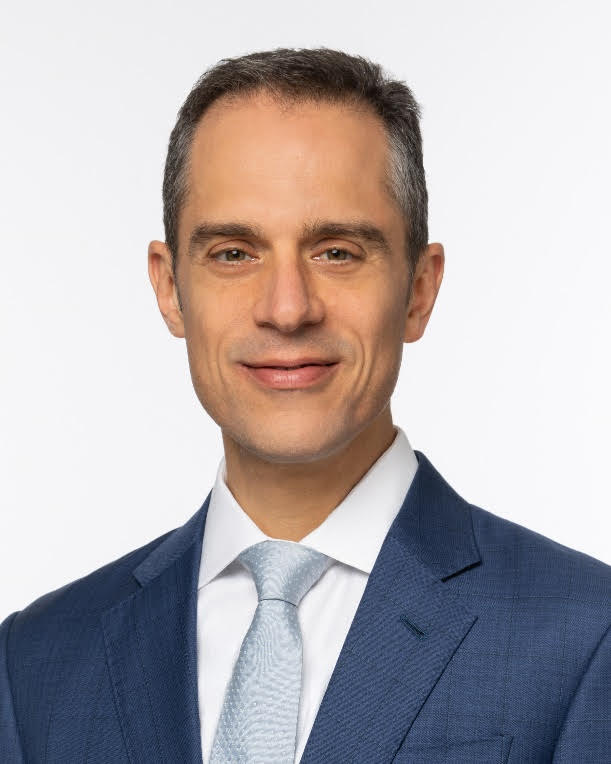
Profile
Eric Golden
Managing Director, Co-Head and Co-Founder, Fortress Investment Group Japan
Eric Golden led real estate private equity investments at the company for 17 years. Currently, serves as a board member of MEER (Mirrors for Earth's Energy Rebalancing), a U.S.-based nonprofit, and of the certified Japanese NPO Room to Read Japan, actively engaging in impact investing and philanthropy across education, climate, and healthcare. Received a B.A. in Mathematical Economics from Brown University, class of 1999.
Philanthropy can take many shapes—from children’s education and healthcare to global climate action. Few people embody this breadth of commitment as fully as Eric Golden. We recently spoke with Eric about how his giving has evolved—from waking up early to volunteer at a local food drive in Tokyo, to piloting a breakthrough cooling technology in Sierra Leone. Here is a snapshot of his story.
Early Seeds of Giving
After moving to Japan at age 23, Eric found ways to volunteer despite a demanding career in finance. One of his earliest efforts was with Second Harvest Japan, an NPO that distributes food to people in need.
“It’s hard,” he says of juggling philanthropy and work. “I’ve got to be efficient. I don’t watch TV; I haven’t watched TV in a couple of decades. I pick my hobbies so I can prioritize work, family, and volunteering.”
Eric credits his upbringing—his parents were teachers—for instilling in him the importance of helping those in vulnerable circumstances.
Focus of Education: Room to Read
By 2007, Eric pivoted more formally into philanthropy. One of the first organizations he supported was Room to Read, an NPO providing literacy and girls’ education programs in Asia and Africa.
“I found it really rewarding to help kids—boys and girls in the global south, especially South Asia and Africa—access education for a relatively small amount of money,” Eric explains. “If we didn’t support them, they wouldn’t be able to get an education, and that opportunity brings huge benefits to their families, villages, and cities.”
Visiting a Room to Read project in Vietnam reinforced his commitment when he saw firsthand how children lit up with the promise of learning.
Expanding into Climate Action
Over time, Eric grew more concerned about global warming.
“I was obviously concerned about the environment, but it was less existential to me at first,” he recalls. “Then I learned more about how bad the situation is—and will likely become—and I started getting more involved in environmental causes to help lower global warming.”
He realized that temperatures are likely to well exceed the targets set by the Paris Agreement, which would have far-reaching consequences. In searching for direct, tangible ways to combat global warming, Eric discovered MEER.
Enter MEER: Cooling the Planet with Reflective Tech
MEER is a nonprofit founded by scientist and former Harvard researcher Dr. Ye Tao. It focuses on passive cooling—using low-cost reflective materials (or “mirrors”) to bounce sunlight back into space before it converts into heat. Unlike more complex geoengineering proposals, MEER’s methods have immediate, on-the-ground applications.
“We’ve basically proven we can cool interior temperatures by up to seven degrees Celsius in Sierra Leone, which is huge,” Eric notes. “Now we’re trying to make it scalable: how can we make it cheap, fully recycled, ideally produce it locally, and so it can be assembled very quickly?”
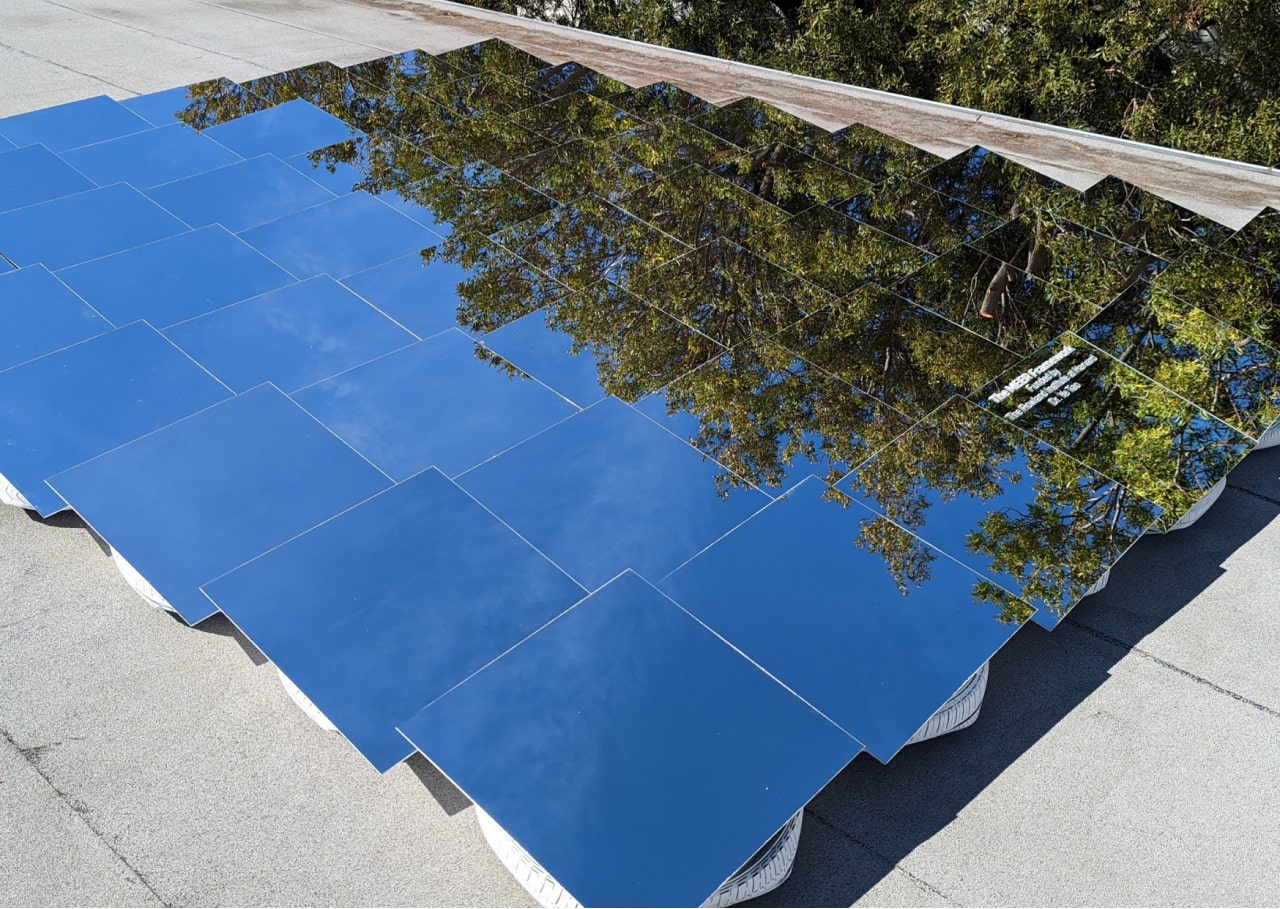
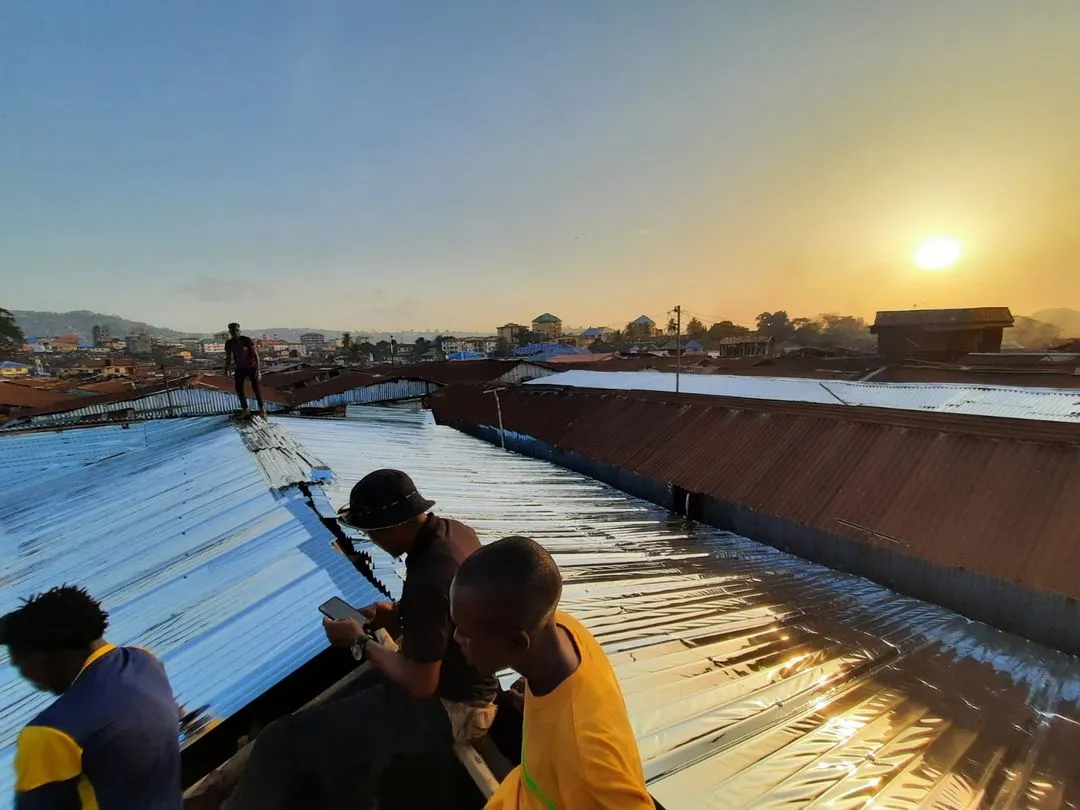
Installation of Reflective Panels on Rooftops in Sierra Leone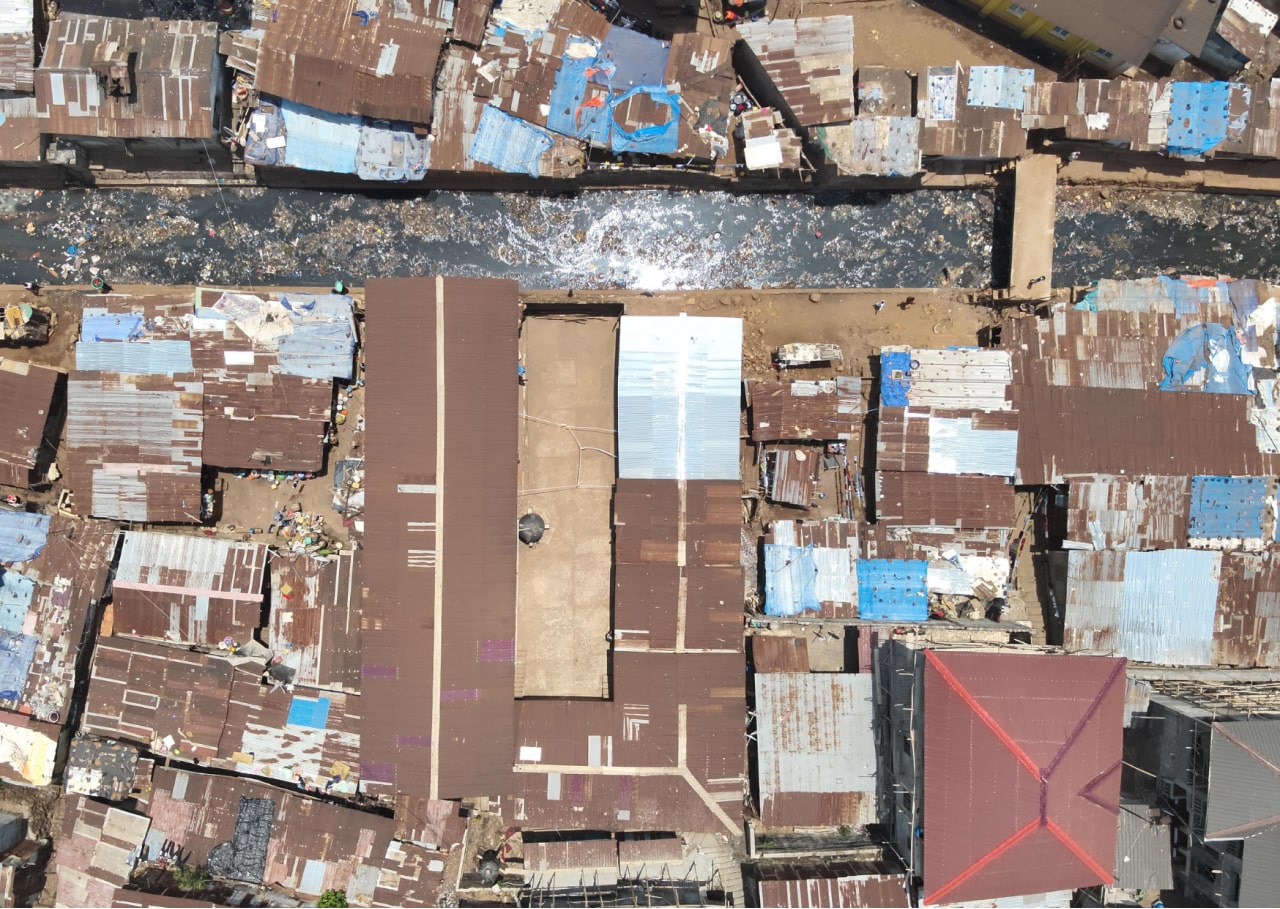
Top View of MEER’s Reflective Panels
MEER develops affordable, low-impact mirrors made from recycled aluminum and regenerated plastic. Designed for environmental and economic sustainability, the mirrors are produced locally whenever possible—reducing costs, minimizing emissions, and supporting community-based manufacturing and job creation.
These reflective panels serve three key purposes:
- Urban Cooling: Installed on rooftops, they can lower indoor temperatures by up to 7°C, improving living conditions in homes, schools, and clinics in extreme heat.
- Water Conservation: When floated on reservoirs, they reduce evaporation by as much as 90%, preserving drinking water in drought-prone areas.
- Agricultural Protection (in development): Mirrors placed near crops will help shield plants and soil from intense sunlight, reducing dryness and crop failure.
Though still in its early stages, MEER is gaining recognition for its innovative, immediately deployable solutions in regions most vulnerable to climate change. Its blend of recycled materials, local production, and real-world application offers a scalable model for climate adaptation.
Criteria for Philanthropy and Impact Investing
Eric’s approach to supporting causes—whether through direct donations or impact investments—has been shaped by two main considerations: Potential for Significant Impact and Clear Alignment with personal Values and Resources.
One key factor is whether the initiative can generate a significant impact. For example, in areas like education or climate change, I ask whether even a modest amount of funding can lead to truly meaningful change. That’s exactly what drew me to Room to Read—its ability to create real outcomes with limited resources.
Another factor is how well the initiative aligns with my personal values and available resources, such as time and capital. In the past, I pursued high-risk investments in sectors like healthcare and the environment, believing that the potential for transformative impact justified the risk. However, after recognizing the potential of MEER’s cooling technology, I’ve shifted my focus—stepping back from riskier investments and concentrating both my funding and time on this promising solution.
Beyond MEER: Impact Investing in Healthcare and Democracy
Eric’s past and current impact investments extend primarily into healthcare. He has backed primary-care clinics in Nairobi, Kenya, and virtual care services in Pakistan to improve affordable healthcare access:
“I found a few different organizations through Tonic,” Eric says. “They were trying to get profitable or break-even clinics in Nairobi, serving people who earn maybe a few thousand dollars a year.”
In the United States, he also supports nonprofits that defend voter rights and promote electoral reforms like ranked-choice voting. While these efforts differ from his climate work, Eric sees them as complementary measures to strengthen societal and governmental systems—“improving the broader infrastructure that ultimately helps everyone,” he notes.
Looking Ahead
Eric’s top priority has been helping MEER expand the reflective cooling technology that has already shown promise in Sierra Leone, making it widely affordable and easy to assemble. He also continues to support education, healthcare, and democracy-building initiatives around the world, guided by the same criteria he’s honed over years of philanthropic engagement.
“Especially at MEER, it’s kind of a startup phase,” Eric says. “It’s hard building any organization, especially a nonprofit without money coming in. It’s tough.”
Yet, he remains resolute in his mission. Whether distributing food to families in Tokyo’s Ueno district, funding education programs across South Asia, or reflecting sunlight to cool homes in Africa, Eric stands by his belief that well-targeted support can produce lasting benefits for communities most in need.
TOP

